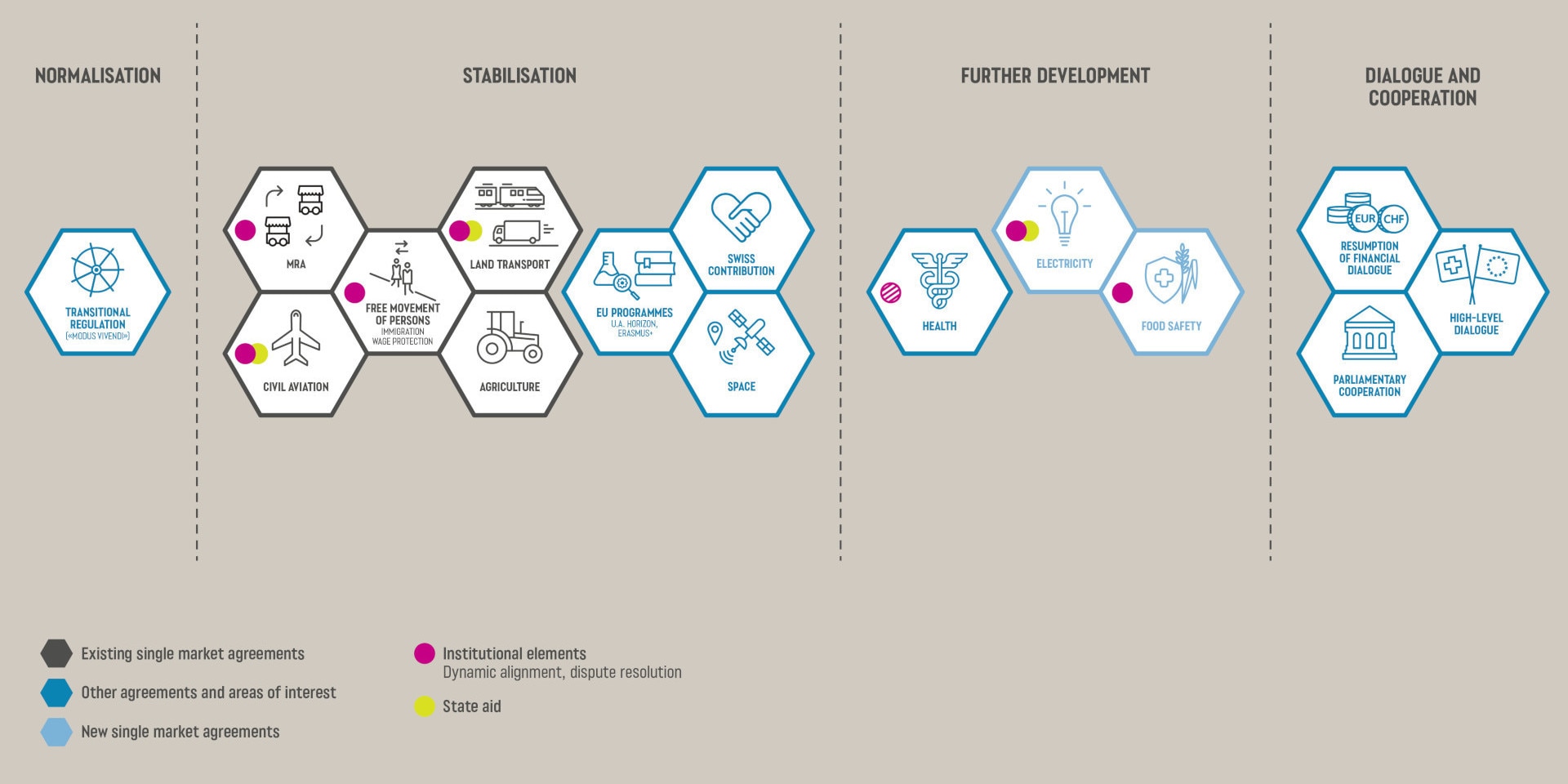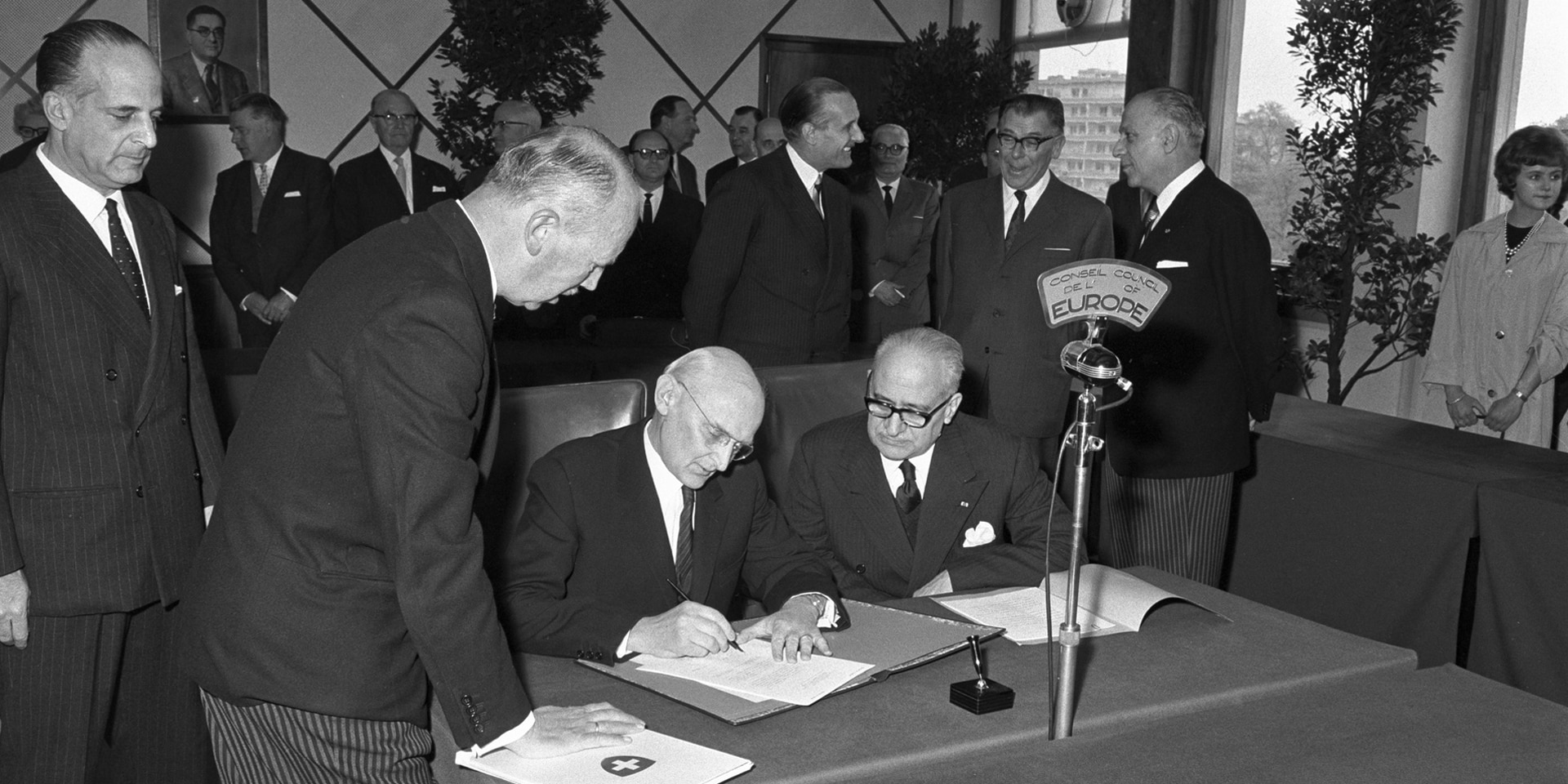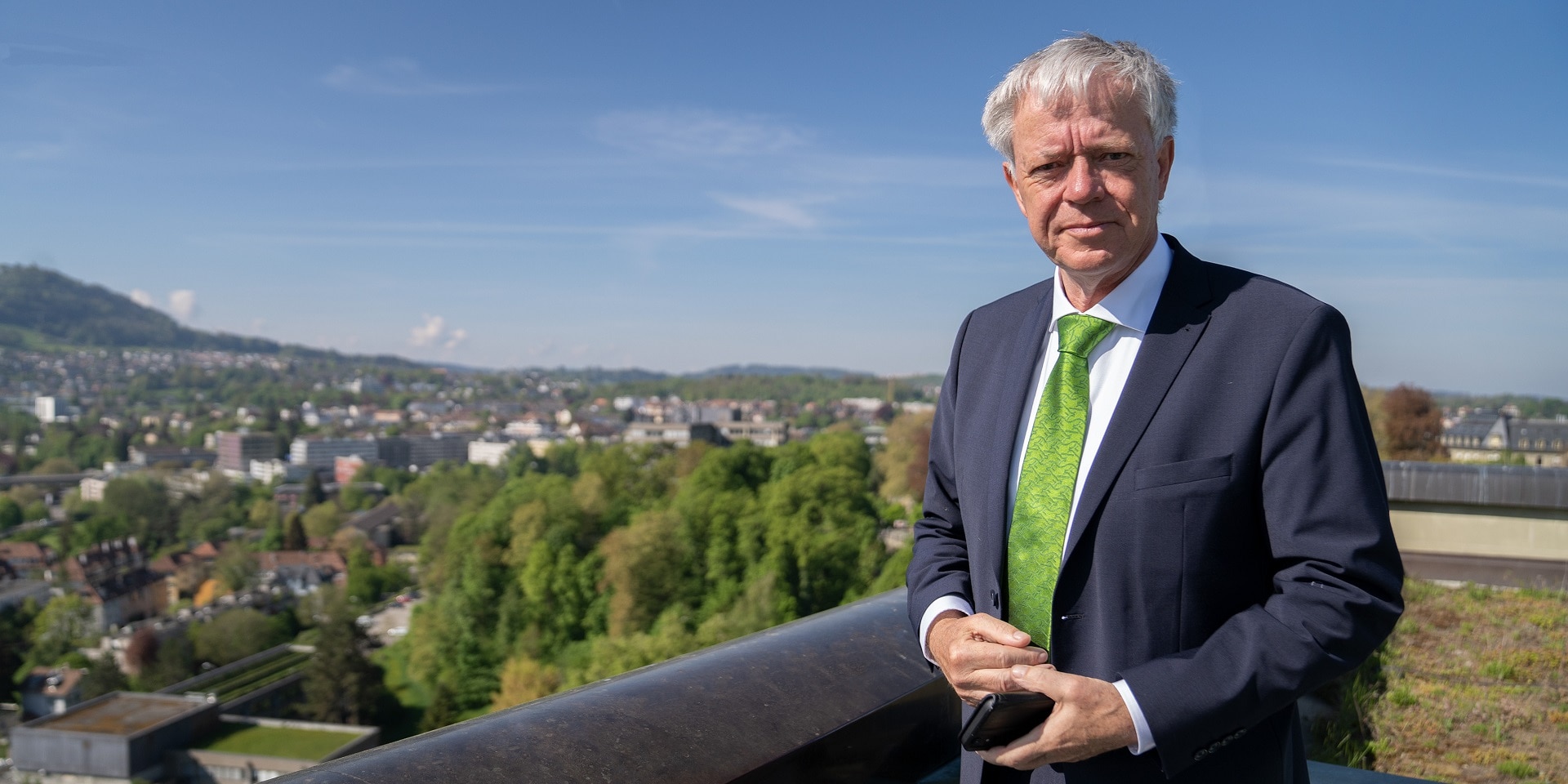"EUSALP brings governments and people closer together"
The countries of the Alpine arc share many common challenges. In the EU-Strategy for the Alpine Region (EUSALP), they are tackling them together. EUSALP was presided over by the Confederation and the cantons in 2023. At the annual EUSALP forum in Bad Ragaz on 19 October 2023 Switzerland officially handed over the wheel to Slovenia for next year. Explanations on the role and importance of EUSALP for Switzerland.
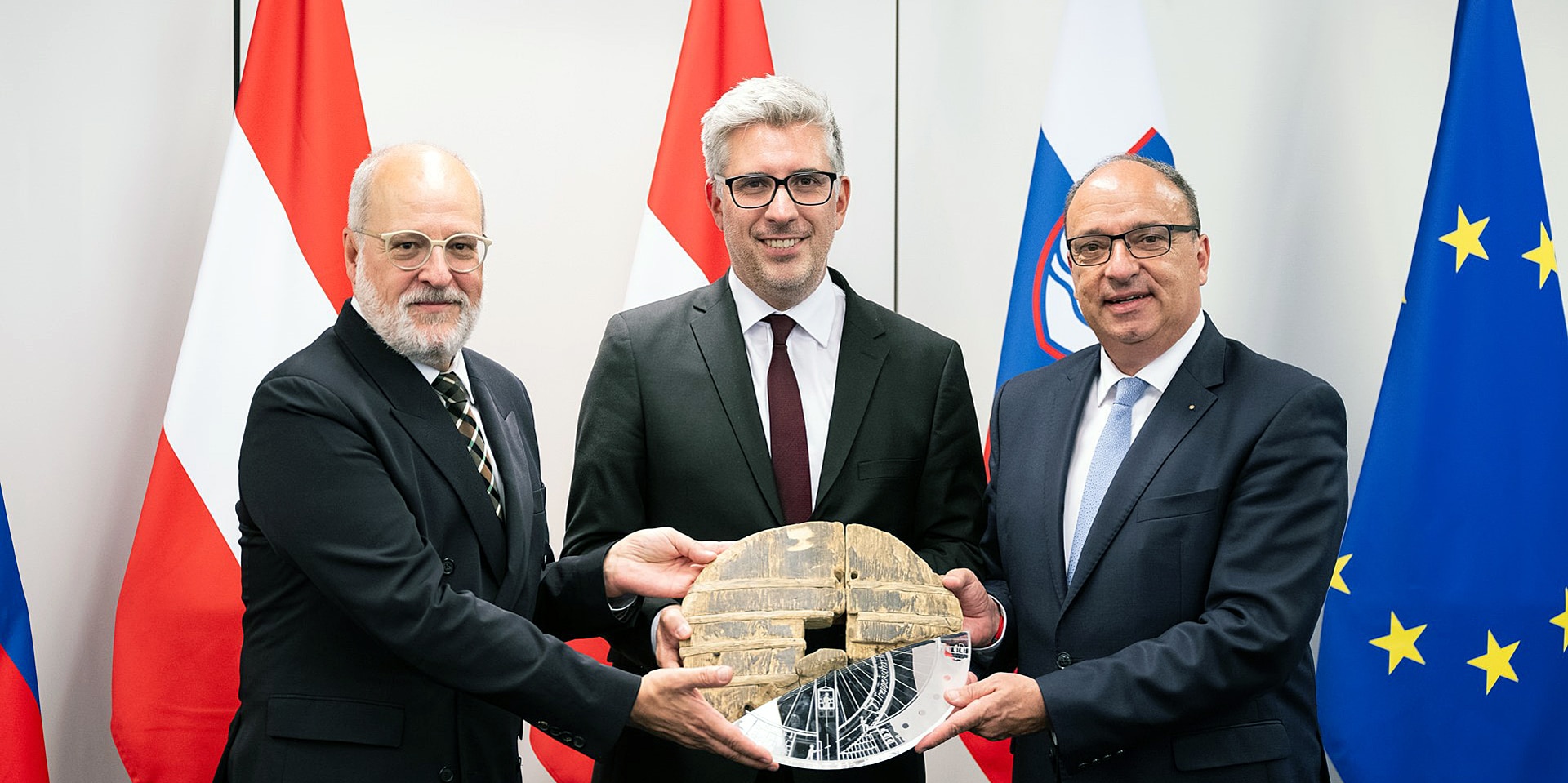
Switzerland has officially passed the presidency of EUSALP on to Slovenia for 2024. State Secretary of the FDFA and Markus Dieth, president of the Conference of Cantonal Governments, handed over the EUSALP wheel to Slovenia's state secretary for European affairs, Marko Štucin. © davidschweizer.ch
The unique ecosystem of the Alpine region stretches across national borders. In social, economic, nature-related and cultural terms, the states and regions of the Alpine arc are faced with similar phenomena and challenges. Switzerland is at the heart of this environment and is involved in its underlying dynamics. In 2023, the Swiss Confederation and the cantons took on, for the first time, EUSALP's presidency. EUSALP was created in 2015 as a European cohesion policy instrument to improve cooperation between Alpine regions and states. It comprises 7 countries (Austria, France, Germany, Italy, Liechtenstein, Slovenia and Switzerland) and 48 regions – including the Swiss cantons, Tyrol, Bavaria and Burgundy.
The Federal Department of Foreign Affairs, the Federal Office for Spatial Development, the State Secretariat for Economic Affairs, the Conference of Cantonal Governments (CCG) and the host cantons worked hand in hand during the presidential year. The State Secretary of the FDFA Alexandre Fasel, accompanied by CCG President Markus Dieth, officially closed the year of the Swiss Presidency on 19 October 2023 in Bad Ragaz at the EUSALP Annual Forum, handing over the wheel to Slovenia for 2024.
How important is EUSALP for Switzerland, and what work was done during Switzerland's presidential year? To find out, we've interviewed Ambassador Sonja Hürlimann, head of Bilateral Relations in the FDFA's Europe Division.
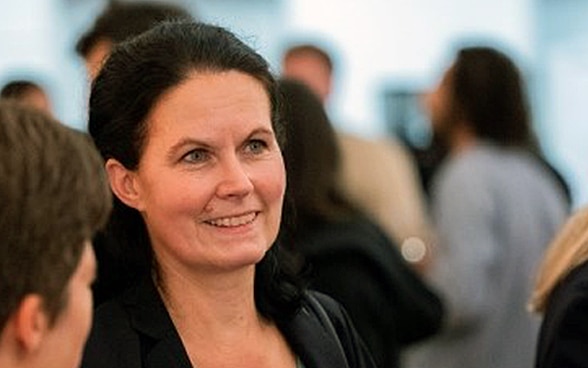
Why is EUSALP important for Switzerland?
EUSALP provides a political framework that allows the countries of the Alpine region to address and solve problems together, to better exploit their common potential and to deepen cross-border cooperation. This is essential for Switzerland too.
EUSALP allows Switzerland to work constructively with the other EUSALP members, at both national and regional level, to protect the varied landscape, rich biodiversity and cultural heritage of the Alps.
In addition, the great potential of the Alps, e.g. in tourism, can also be drawn on together and preserved for future generations more effectively through EUSALP. Switzerland's EUSALP engagement focuses primarily on enabling even better cooperation with the country's partners and border-sharing neighbours
What added value was the Swiss Presidency able to contribute to EUSALP and what was achieved under its aegis?
Switzerland was the first non-EU country to hold the rotating presidency of the EU Strategy for the Alpine Region. The Confederation and the cantons set specific priorities during this presidency. We focused on a few cross-cutting issues of importance for the entire Alpine region and thus strengthened the political relevance of EUSALP. One significant example of this is the Bad Ragaz Declaration adopted on 19 October. By organising four events in the four language regions of Switzerland (in the towns of Fribourg, Lugano, Scuol and now Bad Ragaz), we also wanted to show how our federalism, cultural diversity, and citizens' participation, in particular the young generation, plays out in everyday life in Switzerland.
What common challenges and issues were addressed during the Swiss Presidency of EUSALP?
Switzerland focused on three themes during its presidency: circular economy, water and transport/mobility. An international conference on each of these topics was organised in a Swiss host canton. The first conference in March in Fribourg brought together stakeholders from across the Alpine region to discuss the circular economy, a key issue for regional development. The participants signed a declaration on deepening cooperation.
The second conference was held on the topic of water in Scuol. When it comes to water, all EUSALP member states are confronted with the trade-off between using and preserving water. Despite the Alps being known as Europe's water tower, we are increasingly grappling with water scarcity. At the same time, natural disasters, especially those related to water, are on the rise.
The third and last conference, held in Lugano, focused on transport and mobility. Around 150 stakeholders from the entire Alpine region met to discuss matters including how to further the goal of moving transalpine traffic from road to rail and thus help to meet the energy and climate policy challenges in the Alps. Increased coordination between the Alpine regions on these issues can actually make a difference by seeking exchanges and possible solutions at an early stage.
How is EUSALP contributing to economic, social and territorial cohesion in the Alpine region?
EUSALP offers various forums for cross-border exchanges in the Alpine region. It brings together experts, politicians and citizens to share best practice in business, education, the environment, mobility, etc. This then allows the cantons, regions, cities and valleys to implement the jointly developed solutions for successfully overcoming challenges.
EUSALP brings governments and people closer together, thus strengthening economic, social and territorial cohesion. This is a prime example of the European culture of cooperation.

